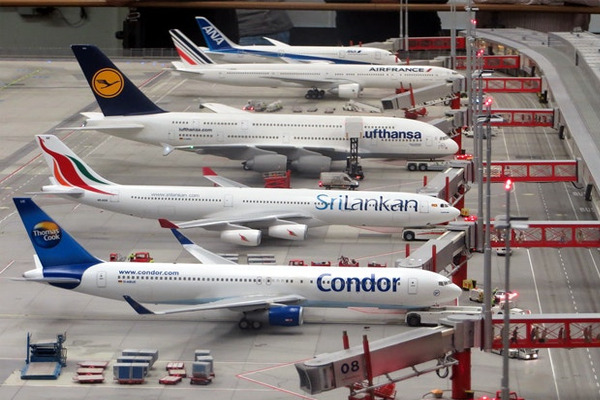The latest research from Women in Hospitality, Travel & Leisure (WiHTL) has revealed that the pandemic has paused diversity and inclusion (D&I) efforts in the struggling hospitality, travel and leisure industry. D&I has dropped down the priority list for business leaders as their focus turns to survival.
The report also reveals that women and minority groups have been negatively impacted the most by the pandemic. The industry therefore needs to prioritise D&I to mitigate “risks” and “unintended consequences”, reports WiHTL.
The report entitled Guarding Against Unintended Consequences: The Impact of Covid-19 on Gender and Race & Ethnic Diversity in Hospitality, Travel & Leisure, was carried out in partnership with The MBS Group and PwC. It explores the negative impact of Covid-19 actions – from furlough to remote working – on the industry’s staff, employers and D&I progress.
SURVIVAL FOCUS
With company leaders more focused on survival, the report found that D&I has dropped down the priority list for CEOs and Boards over the last six months. Just 15% of companies reported that D&I has been raised at Board meetings regularly over the last period, with 42% saying it has come up “infrequently”. But the topic didn’t come up at all for 43% of firms. Furthermore, the report reveals that diversity has also fallen down the priority list for shareholders.

Image credit: Pixabay
The report found that D&I budgets and resources have also been cut. Many D&I leaders have been furloughed, let go or diverted to other parts of the business, notes the study. Cost-cutting measures have meant that many of the action plans designed to improve diversity and increase representation have been paused or had their budgets cut. Imbalances and discrepancies that already existed in the sector for women and ethnic minorities (at all levels) pre-pandemic have been further exacerbated by Covid-19.
NEGATIVE IMPACT
The report predicts that Covid-19 is likely to have a negative impact on gender diversity across the sector for a number of reasons. Firstly, a higher proportion of women have been furloughed, put on reduced hours or made redundant (65%) than men (56%). Secondly, 67% of employees from ethnic minorities have been furloughed, put on reduced hours or made redundant, compared to 62% of White colleagues.
The report also found that more women and people from ethnic minorities have accepted voluntary redundancy packages due to caring responsibilities, or because their roles are more easily transferable to other sectors. With the hospitality, travel and leisure sector in turmoil, many leaders have reported that individuals in non-sector-specific roles, which tend to have higher proportions of female and diverse candidates, may choose to exit the business in favour of lower-risk industries. That means the sector risks taking a significant step back in female representation across at least two of the three leadership levels (executive committee and direct reports), confirms WiHTL.

GLARING WEAKNESS
To further exacerbate the issue, mass restructuring has decreased the number of visible female and ethnic minorities role models in the sector. Another significant finding is the gap that exists in businesses across the sector between understanding and action. A lack of data is the most glaring weakness and the biggest opportunity, highlights the report.
To ensure that company policies, protocols and actions are relevant to all staff, and to avoid bias becoming further engrained, it’s “crucial that responses are based on a clear understanding of the challenges faced by different groups of people and what underpins them”, notes WiHTL. “Without data, insight and deep understanding, companies are shooting in the dark.”
OPPORTUNITY FOR IMPROVEMENT
Despite the backwards steps for D&I in the sector, there is some hope, confirms WiHTL. Covid-19 has shown businesses that flexible and remote working policies can be highly effective. As the lack of flexible working policies has historically been a barrier to progression for women, this development could wave in a new era for those with caring responsibilities.

Overall, there is a belief that the changes resulting from the crisis could present an opportunity to improve future diversity in the sector. In fact, 50% say it’s “likely”; and 37% believe it’s “possible”. Around 44% of businesses actually reported that D&I has been a higher priority for their business since the outset of Covid-19. A further 33% said it has remained as important as pre-Covid. Nevertheless, the report also revealed that D&I isn’t a priority for more than half of the businesses in the sector, which is concerning.
WATERSHED MOMENT
“This is not the time to slow down individual and collaborative efforts towards creating more inclusive environments,” advises Tea Colaianni, Founder & Chair of WiHTL. “Now is the time to accelerate, propel and invest in diverse talent, creativity, innovation, create sustainable outputs and eliminate inequalities. It is not just a question of moral justice. It is a matter of competitive advantage in the face of huge adversity and uncertainty. This crisis might be the catalyst for more positive gendered and ethnic change if we are able to harness the benefits, and mitigate the risks.”

Elliott Goldstein, Managing Partner of The MBS Group also believes that the sector has the “opportunity to turn Covid-19 into a watershed moment -– an opportunity to move the dial positively on D&I”. “With creativity and an informed approach, inevitable restructures could enable new and diverse talent to emerge,” explained Goldstein. Put simply, “businesses that fail to prioritise D&I – especially now – will suffer as they find themselves outrun by their more forward-thinking competitors, whose leadership is fully representative of their consumer base”, he added.
DIVERSITY DATA: CRITICAL FIRST STEP
Adding to Goldstein’s comments, Katy Bennett, Director, People Consulting of PwC, stated: “Our survey found an encouraging level of support for staff during an exceptionally difficult and stressful time. However, a significant proportion of hospitality, travel and leisure workers have felt insufficiently supported or protected, particularly from a personal safety perspective. And these concerns were highest amongst sections of the workforce that may already have faced discrimination.”
For many companies, collecting and considering diversity data as part of key decisions on pay and employment is a critical first step. “Organisations that are conscious of the particular issues facing their female and Black, Asian and Minority Ethnic workers, can actively build a more inclusive culture, which will give them a clear edge in winning over customers and developing innovative solutions to help their businesses survive and thrive,” highlighted Bennett.
The report includes actions that businesses in the industry can take to curb the negative impact of Covid-19 on D&I. Click here to download a copy of the report.






































